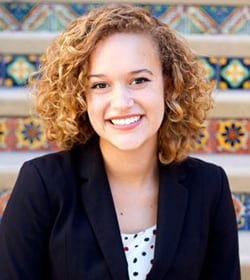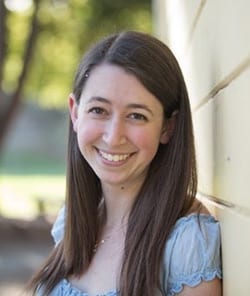By Andrew Cohen
On its face, Berkeley Law’s Student-Initiated Legal Services Projects (SLPS) offer niche pro bono endeavors, each focused on a narrow issue of public interest. But more broadly, they form the sweet spot that attracts so many students to the school.
The program offers students the chance to interact with clients right away—in contrast to most law schools, where such opportunities do not emerge until the second year; the chance to develop vital lawyering skills such as intake and interviewing, legal research and analysis and oral advocacy; and the chance to help the disadvantaged—all outside the academic bubble.
This school year, Berkeley Law supports 27 SLPS projects—more than ever before—founded and operated by students. Each identifies a legal need and recruits supervising attorneys and students. Groups work with clients from refugees and low-wage workers to foster children and former prisoners. Participating students commit as little as 20 hours per semester to as many as 50-plus while becoming more attuned to community needs—and more attractive to legal employers.
“These projects are a vital part of the first-year experience at Berkeley Law,” said SLPS Coordinator Diana DiGennaro ’06. “They allow students to engage immediately with the communities and issues about which they care deeply, and they introduce one of the most time-honored values of the legal profession: the privilege and responsibility to provide voluntary pro bono legal services.”
Here’s a look at three such projects:
Protecting consumers

For Spencer Watson ’18, working with the Consumer Rights Workshop (CRW) is a labor of love. Growing up, he saw the financial difficulties his mother faced raising two children while attending graduate school. “She had trouble negotiating the financial aid process, high amounts of credit debt and a broad lack of resources available for low-income people to manage credit well,” Watson said.
Before law school, Watson worked as a credit counselor for the Consumer Credit Counseling Service of San Francisco. He quickly became “intent on coming to law school to change lives for financially at-risk and exploited groups.” CRW allows him to do just that.
The group has 10 new students this year working on consumer-law topics such as credit reporting, automotive lending, banking and financial transactions and student loans. A unit of the East Bay Community Law Center (EBCLC), CRW staffs a free legal clinic for low-income Alameda County residents every other Monday night. The students are supervised by EBCLC attorneys Kara Alba ’14, Miguel Soto and Sharon Djemal.
“Their knowledge covers much of the vast constellation of consumer law topics, and their experience working with indigent clients is invaluable,” Watson said. “The training our students receive lets them engage meaningfully with clients, communicate effectively about these often emotionally charged subjects and work with expert attorneys to help get a client to the appropriate next step.”
Because reliable information on consumer protection topics can be obscure and difficult to understand, CRW provides an increasingly important service.
“Many of our clients come in incredibly confused about what’s even happening and what can be done about it,” Watson said. “The most important thing our student volunteers can do is provide clarity. With guidance from our supervising attorneys, they can then elucidate what options the client has to attack whatever problem they’re experiencing.”
A recent client of Watson’s had about $800, nearly his entire week’s salary, erroneously removed from his prepaid debit card. While his bank and his card’s company blamed each other, CRW sent a letter to both parties seeking records related to the loss. Simultaneously, EBCLC’s Consumer Justice Clinic students and attorneys helped the client prepare a small claims suit. That joint effort prompted the card company to return the client’s funds.
“There are few more rewarding motivations than getting people who need it the most the money that they were cheated out of,” Watson said.
The truth about trafficking
Some students dive into areas of interest for the first time at Berkeley Law. Others, like Alynia Phillips ’17, build on experience they gained before law school. Phillips co-directs the Boalt Anti-Trafficking Project (BATPro), which combats sex and labor trafficking.

Having worked in the Alameda County District Attorney’s Human Exploitation and Trafficking unit for 17 months, Phillips saw how pervasive the crime has become—and how challenging it is to fight it. “Human trafficking is an incredibly prolific clandestine criminal enterprise, often referred to as ‘modern-day slavery,’ that negatively affects nearly every community in a variety of ways,” she said.
Phillips noted that while many mistakenly believe trafficking only happens overseas or requires the crossing of borders by force, the practice is prevalent in many U.S. communities. That includes the Bay Area, where underage sex trafficking and labor trafficking are both common. “Labor trafficking often goes unnoticed,” she said. “Victims are often confined to the kitchens of restaurants, the corridors of hotels and fishing ships out at sea.”
Working to help create new and innovative ways to locate and serve victims, BATPro last year partnered with the Legal Aid Society-Employment Law Center to help develop litigation strategies for those suing their labor traffickers. Because labor trafficking is a complex area of law that intersects many fields, litigating cases requires significant research. Students tackle research projects in areas such as maritime law, employment law and civil procedure.
“Attorneys are able to fine-tune their strategy and our law students get a glimpse into the actual legal work that goes into drafting a labor trafficking complaint,” Phillips said. “This partnership has been a great success so far and we’re excited to keep it going this year and beyond.”
As part of its teaching mission, BATPro is planning an awareness-building event for the UC Berkeley community that will emphasize labor trafficking. In addition to continuing its education programming for girls in Alameda County’s Juvenile Hall, the group is ironing out plans for teaching in the boys’ unit. BATPro is also partnering with Berkeley and El Cerrito High Schools to teach human trafficking awareness classes there.
“Given that some high schoolers fall into the sex trafficking lifestyle or know friends who have, our main goal is to equip these students with the understanding and knowledge to avoid dangerous situations,” Phillips said. “Our secondary goal is to get the younger generation energized about fighting human trafficking in their communities. We hope to act as mentors for interested students and to connect them with internship and volunteer opportunities.”
A startup venture
Eager to add new terrain to the rapidly expanding campus startup landscape, Hannah Porter ’18 wanted to “make it possible for 1L students to get hands-on experience with that kind of work as early as their first semester.”

That incentive fueled this fall’s launch of the Startup Law Initiative (SLI), through which students will help local entrepreneurs navigate various legal and organizational issues while incorporating their businesses. The work includes research, client intake and drafting and filing documents.
Porter founded SLI with classmate Morgan Dudkewitz ’18. Part of the school’s surging Startup@BerkeleyLaw initiative, the group will conduct three attorney training sessions for students this semester on draft-formation documents for local startups. The co-founders aim to expand next semester, bringing in additional students and supervising attorneys from more firms.
They credit Adam Sterling ’13, executive director of the school’s Berkeley Center for Law and Business and a driving force behind Startup@BerkeleyLaw, as a “great resource in connecting us with supervising attorneys and clients,” Porter said.
Now busy selecting their first clients, Porter and Dudkewitz are anxious to help students and East Bay startups simultaneously.
“We want to serve an unmet legal need in the community by working with local startup founders who couldn’t otherwise overcome the cost-preventative barriers to incorporating their businesses,” Porter said. “Participating students will experience real corporate transactional work and be able to form connections with attorneys at respected Bay Area firms in the startup space. They’ll do the kind of work that summer and first-year associates actually do at big law firms—and develop the skills and knowledge to help them excel in other dynamic Berkeley Law startup programs, such as the New Business Practicum and the InSITE Fellowship.”